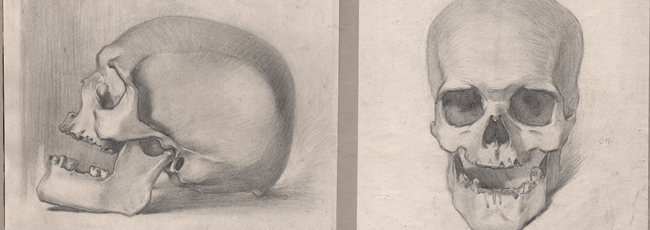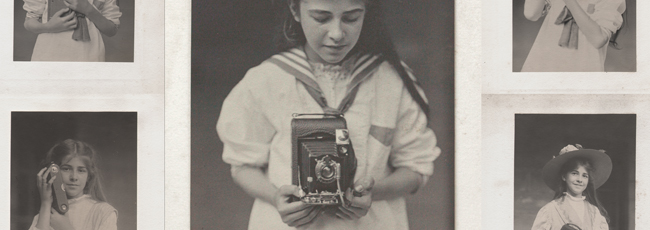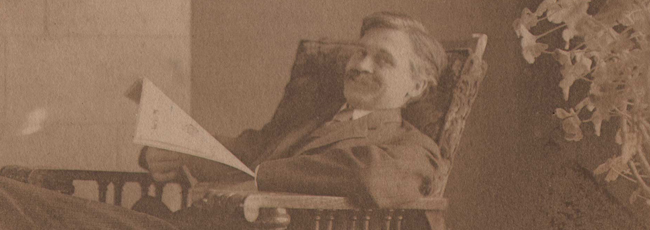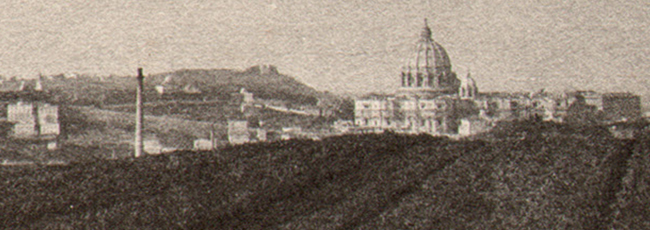At PhotoSeed, we celebrate the life of Ann McElroy Spencer, 1929-2021, one of our most profound influences.
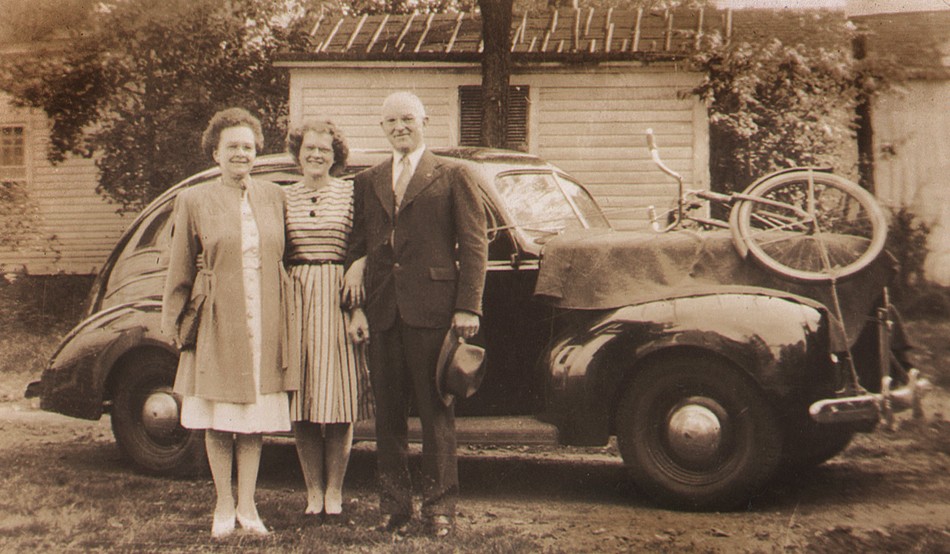
Detail: “Day Ann left for College, Sept. 1946” Jane Ross, American: gelatin silver print: 1946: 9.0 x 15.0 cm. At center, the author’s mother, Ann McElroy, 17, is shown outside her home on South Main Street in Orange, MA flanked by parents James Ernest McElroy (1900-1961) and Edna Sawyer Blanchard (1901-1961). My mom’s bicycle (the color was red) can be seen strapped to the hood of the family car, ready to take her on new adventures and freshman year at the University of Massachusetts at Amherst. Growing up in Orange, my mom was fortunate to have the life-long love of a little sister, my Aunt Jane, and her parents, who were both active and civically engaged in their small New England town. Edna was known by everyone there by her nickname “Happy,” and my grandfather James, recently discharged as a Lieutenant, who served in the United States Navy Reserve in WWII, was the town’s assistant postmaster. Tragically, their lives were cut short in an automobile accident, an event that impacted and shaped the young lives of my mother and aunt. From: Authors family archive.
Words often fail at times like these, but I wanted to take a few moments to recount one remembrance in the very rich life of my mother, Ann McElroy Spencer, 1929-2021, who passed last week. And it has a photography angle! On a late spring day about 20 years ago, I discovered the true secret of her selfless character, qualities reaffirmed to me in her final years by her fellow residents at the assisted living facility she called home.
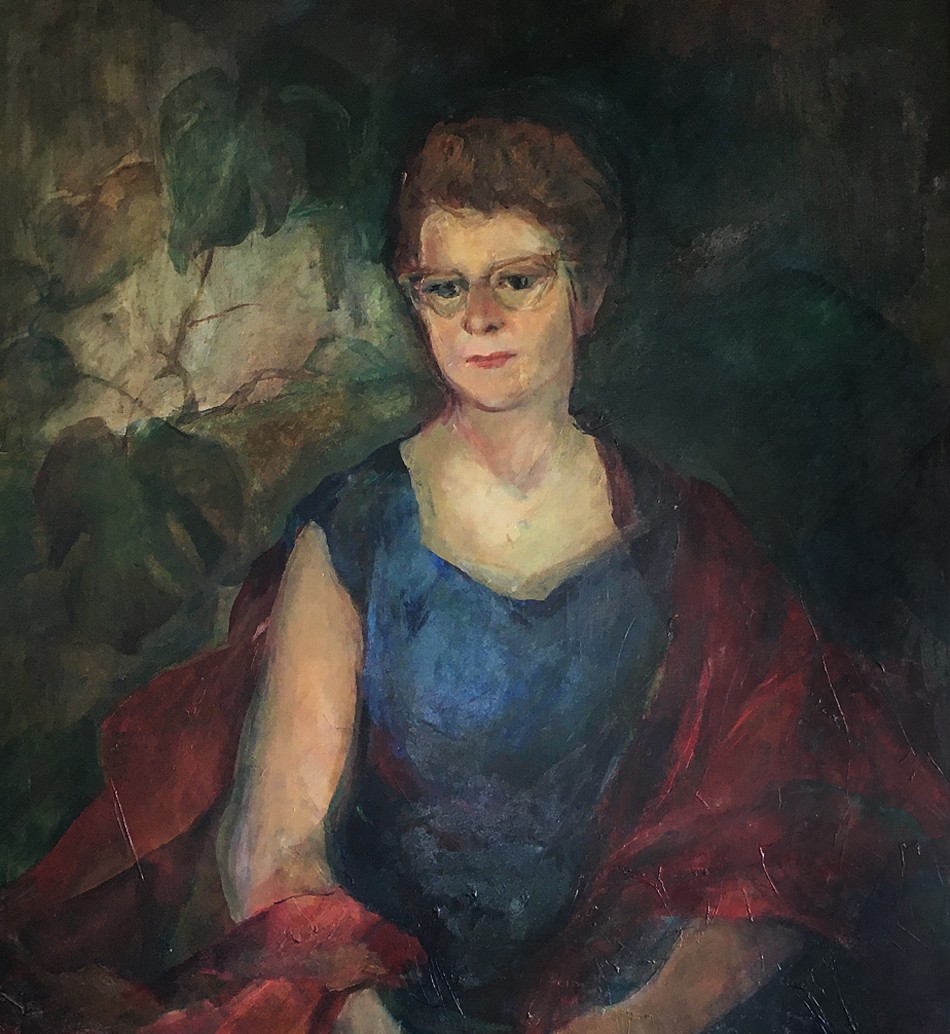
Detail: “Portrait of Ann McElroy Spencer”: Sieglanide “Sissi” Shattuck, American, born Austria: oil on canvas: 1962: 38” x 30” Artist Sissi Shattuck of New Hampshire was a friend of my mother and father in the late 1950s and 1960s. This portrait of my mom, done in her early 30s, always inspired me and it hung for years in the living room of our Connecticut home- the author of this post also had the great fortune to sit for the artist in 1969. From: family collection (artwork © by SissiStudio: sissistudio.com)
On that day, she suggested we take a walk around my old neighborhood, where I had grown up but had long since departed for a career in newspaper photojournalism and, in my mind, greener pastures. To my surprise, the walk this day took us up a long steep hill, a bit distant from the route I was expecting. After reaching the summit and turning left, I was hesitant about where the journey would ultimately lead, but she seemed intent, and I did not question, happy to be sharing some good one-on-one time with her.
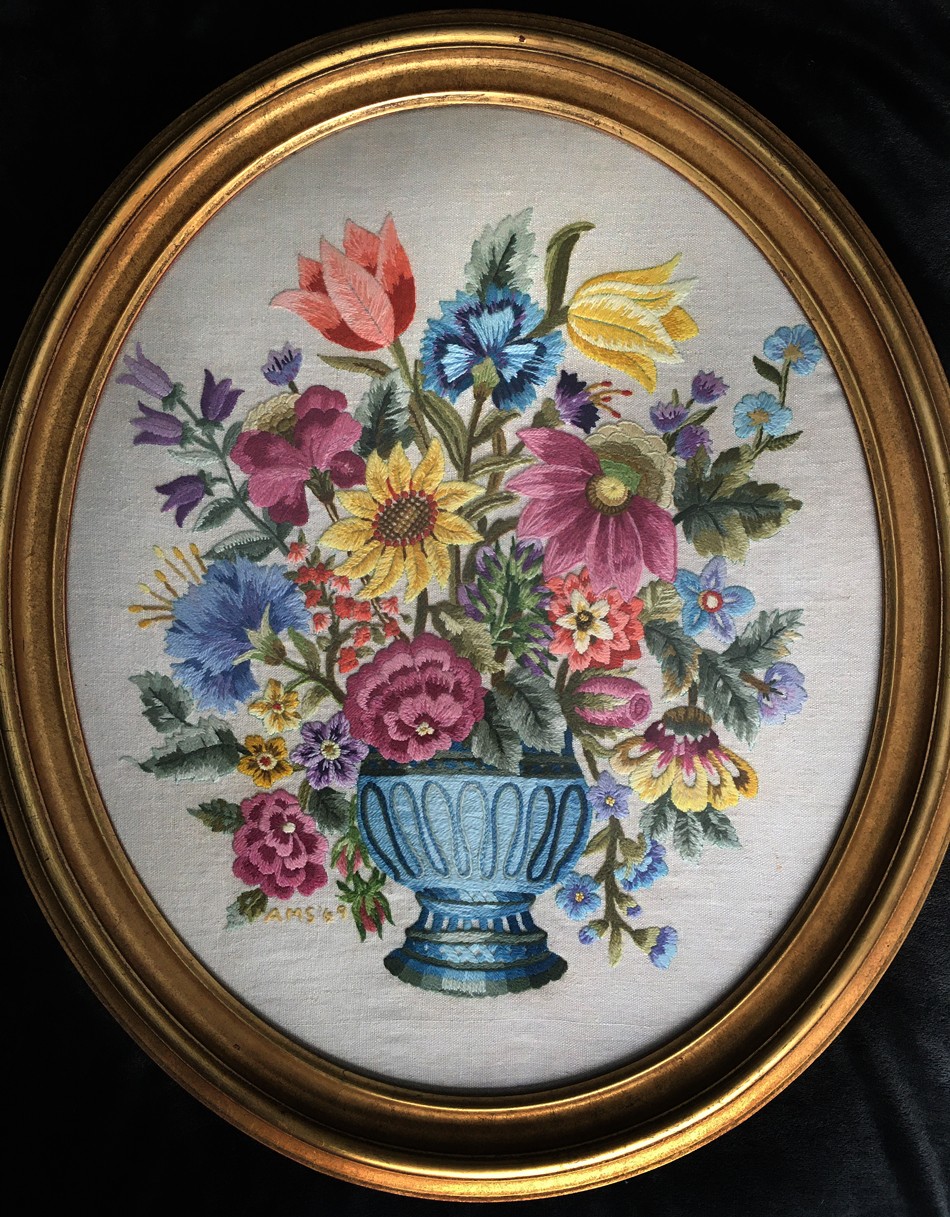
“Crewel Embroidery Flowers in Vase”: Ann McElroy Spencer, American: 1969: 28.25” x 24.25” : dyed wool thread stitched onto linen ground from pattern kit, framed in gilt oval wood frame. My mother learned to sew from her mother at a young age, making her own clothes and things for my brother and me. (Sometimes from the same pattern!) One of my earliest memories as a child was sometime in late 1967, when my mom took on this complex crewel work piece. I found a photo stating it took her 1 1/2 years to finish it, my young self intently following her needle as she worked on the orange and yellow tulips sprouting from the top of the bouquet. From: Authors family collection.
Shortly, we found ourselves in front of an unknown mailbox, in front of a house that was also unknown, at least to me. It was in the next moment, however, that she produced an envelope from somewhere, and proceeded to open the mailbox and deposit the letter within. I casually asked what she was doing and she matter-of-factly stated that earlier that spring, on a previous journey past this mailbox, she had made a mental note to bring along her camera in order to take pictures of flowers growing near it. “A very beautiful display,” or something to that effect, is my recollection of her intent, and reason enough to capture their beauty for eternity, thanks to photography’s magic. She had made prints and placed them in that envelope, intent on sharing them with whomever retrieved the mail at that address—folks that, to the best of my knowledge looking back these many years, were complete strangers. That was my mom. David Spencer-
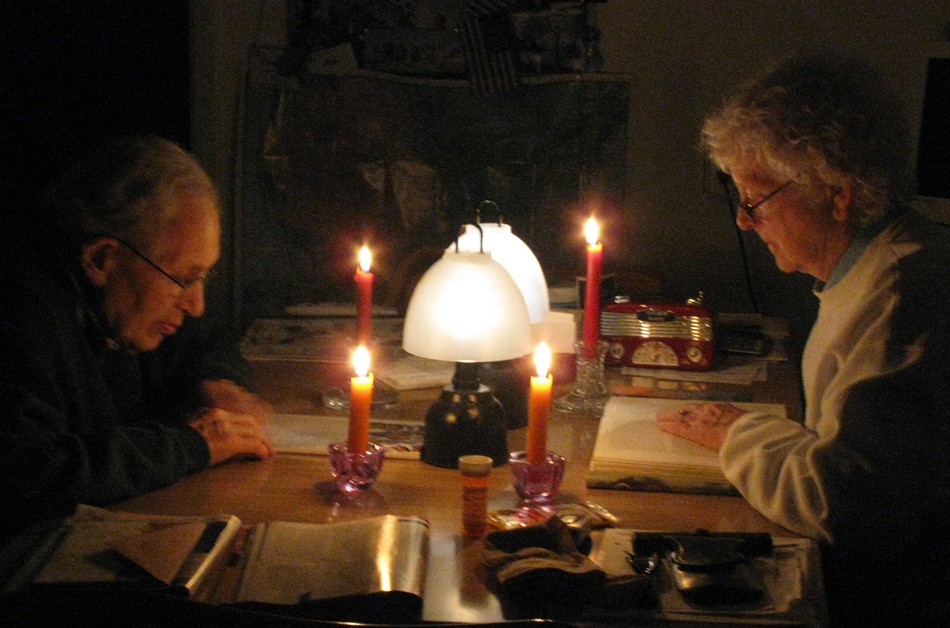
“Ann and Charlie Spencer Reading by Battery & Candlelight”: Photograph by my wife Shannon O’Brien, 2012. During a power outage, my parents keep busy at the kitchen table of their Connecticut home in a favorite pursuit: reading. A long time public educator, one of my mom’s former students wrote this touching condolence: “Mrs Spencer was my 7th grade English teacher who inspired me to become a poet and the love of poetry. We were required to memorize selected poems which to this day I still can recite aloud. She was strict but kind. As a result of her love of the educational world, I also became a teacher of elementary students in Fairfield where we began each day with a poem to read and copy in script.” From: Authors family collection.
The Piano Lesson
by Ann Spencer
She was always there, waiting, just inside the door. I came lingeringly up the walk, book-bag bumping against my leg. She opened the door and I sidled past into the dim hall that seemed to smell of old things. “Five minutes late!” she said. I smiled weakly. I followed her into the living room, brushing against the heavy brown velveteen portieres, which helped keep the room warm in winter. She waited silently while I took off my coat and dropped it on the horsehair sofa. The armchairs, each with their antimacassars, stood guard, like sentinels, in their appointed places. Somewhere a clock chimed the quarter hour. It was risky to be late. It was rude to allow her to wait, in expectation, behind the etched glass window of the front door. Promptness was a virtue.
Ida Conrad Babb was Conservatory trained and was one of the two piano teachers in our small New England town. It was the depths of the Depression, and the money she made by giving lessons provided for her groceries: she had no car. She was tenacious of her pupils and held herself stiffly, as if the loss of even one student would cause her to crack and send her to the poor farm on East River Street. I recall her across the gulf of the years, not unkindly, but with some trepidation. She was one of the few adults in my life at the time who evaluated my work. I felt sorry for her- in my way. She was my first piano teacher.
We approached the piano which was housed in an alcove off the living room- a large instrument tucked into a little space, almost like an afterthought. Pulling out the music from my bag, I put Henri Hertz- Scales and Arpeggios on the piano rack. “Well,” she said, “let’s commence with the scales. We have to warm up the fingers first,” and she’d smile so that her slightly protruding teeth showed. I started off, thinking to myself that yesterday when I had practiced scales, I’d said to mother, “Henry Hertz when I do these!” and she had laughed. Now I dutifully sawed through the music- not much facility there- certainly no joy. I was sure she’d give me a “Fair” this week on my report card.
A dog barked somewhere in the back of the house, and I ploughed on through the other studies. “Mind your fingering.” “Commence again- play it at half-tempo.” And again: “You’re not practicing this étude as you ought,” she’d say, reproachfully. Never any praise. It was a relief when she said, “Get that folder, Ann, on top of the piano.” I moved carefully- not much space- and tentatively set aside the framed photograph of her brother killed in World War I. The street she lived on bore his name. I took the folder which contained the pieces. She leafed through the contents and selected one. Now I could sit in her seat by the window and she would sit at the piano and demonstrate how the piece should be played. Spare, erect, hand held above the keyboard- never would she allow them to droop- she played the short composition with fluidity and grace. “Your turn now, “ she said. She seemed happy to restore the piano to me. Never once did I hear her in recital.
After the lesson and after she had meticulously graded my report card- “Fair” for scales and arpeggios, “Very good” for the memorized piece- she told me to go to the kitchen- would I see the dog? to get a note for my parents which would be on the kitchen table. Entering the room, I was suddenly aware of her husband, smoking a pipe in the failing light of a winter’s afternoon. He knew my father, yet he spoke no greeting: a dusty plant, neglected, in a dark corner. I was a little afraid. “Hello,” I said, grabbed the note and didn’t wait for a response.
The tree at the end of her front walk still bore its leaves- sere, clicking against each other in the January wind. “That tree wun’t lose its leaves until spring,” she said. I stumbled back home across the frozen ruts of the two fields which separated our house from hers.
The following week, I commenced piano studies with the other teacher in town. He was a jolly man who emphasized popular tunes over études.
